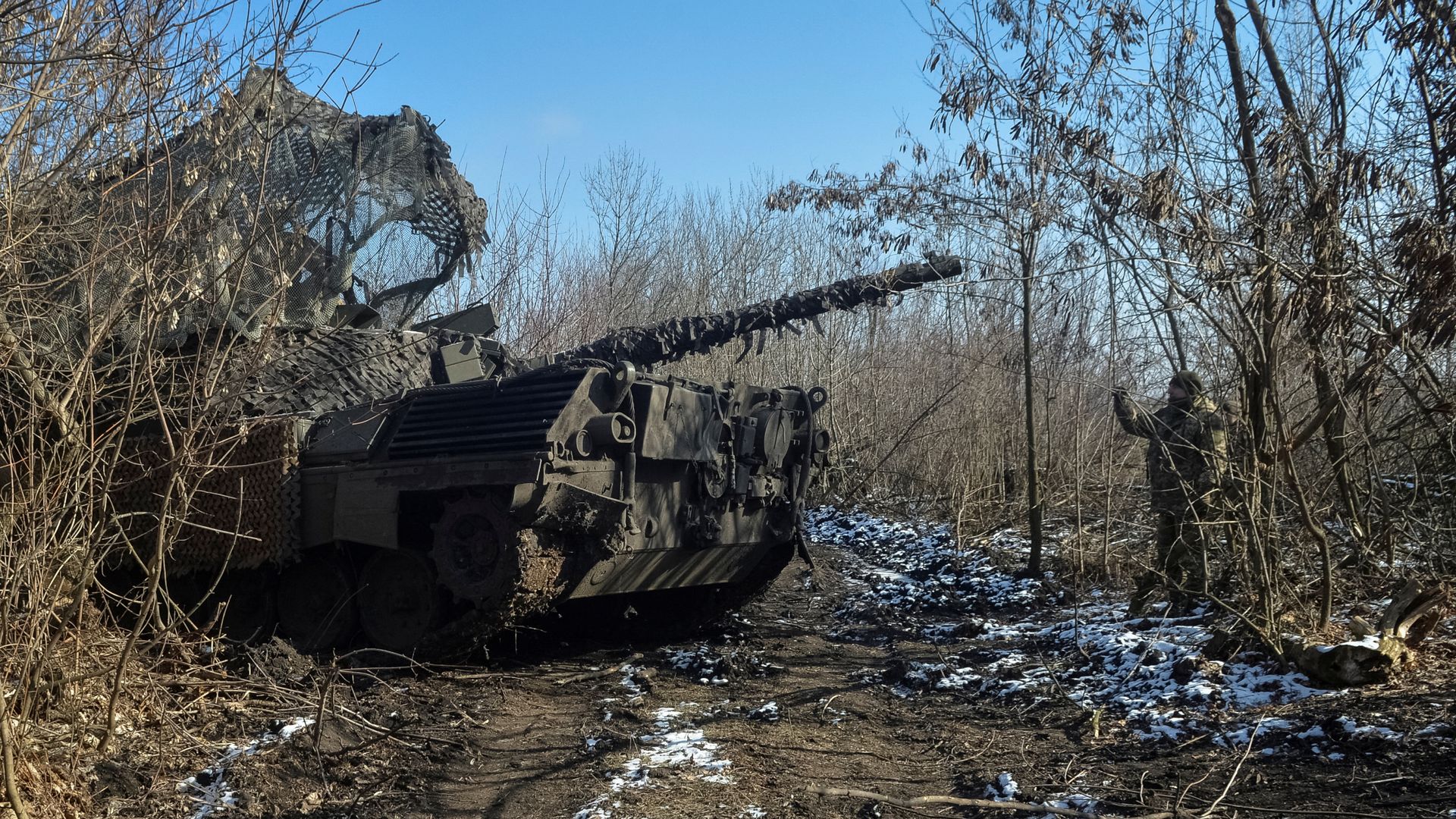Statement from countries including France, Germany and UK comes after US president says he and Putin are ready to begin talks. European powers, including Britain, France and Germany, have said they have to be part of any future negotiations on the fate of Ukraine, underscoring that only a fair accord with security guarantees would ensure lasting peace. “Our shared objectives should be to put Ukraine in a position of strength. Ukraine and Europe must be part of any negotiations,” seven European countries and the European Commission said in a joint statement after a foreign ministers meeting in Paris.
“Ukraine should be provided with strong security guarantees. A just and lasting peace in Ukraine is a necessary condition for a strong transatlantic security,” the statement said, adding that the European powers were looking forward to discussing the way ahead with their American allies. The meeting took place after US President Donald Trump said he had spoken to Russian President Vladimir Putin and that the pair were ready to immediately begin negotiating an end to the war in Ukraine.
The rapid developments have worried Europe, with Putin and Trump appearing to be negotiating the future of the continent’s security over the heads of European leaders themselves. US defence secretary Pete Hegseth is due to meet with dozens of Nato ministers in Brussels on Thursday, after meeting a Ukraine contact group of defence ministers in Brussels on Wednesday. “There will be no just and lasting peace in Ukraine without the participation of Europeans,” French foreign minister Jean-Noel Barrot said at the meeting of ministers from France, Britain, Germany, Poland, Italy, Spain, Ukraine and the European Commission on Wednesday.
Germany’s Annalena Baerbock and Spain’s Jose Manuel Albares Bueno both told the meeting that no decision on Ukraine could be made “without Ukraine” and called on EU countries to show unity on this question. Albares Bueno added: “We want peace for Ukraine but we want an unjust war to end with a just peace.”. Poland’s foreign minister Radoslaw Sikorski meanwhile said that “continued cooperation with the US” was a topic of discussion at the meeting. “There is no better guarantee for the security of our continent than close transatlantic cooperation,” Sikorski said.
When asked if any European countries would be involved in peace talks, White House press secretary Karoline Leavitt said: “I don’t have any European nations who are involved currently to read out for you.”. The Paris meeting , scheduled weeks ago, aimed at outlining the bloc’s defence strategy, discussing how to strengthen Ukraine, planning for future peace talks and discussing how to approach talks with the US administration when they meet at a security conference in Munich this weekend.
But it was derailed after Hegseth delivered the bluntest public statements from the Trump administration on its approach to the nearly three-year war between Ukraine and Russia at a meeting with Ukraine’s international backers in Brussels on Wednesday. He said a return to Ukraine’s pre-2014 borders was unrealistic and the US did not see Nato membership for Kyiv as part of a solution to the war. “Chasing this illusory goal will only prolong the war and cause more suffering,” he said.
Hegseth’s comments were followed by a call by between Trump and Putin, after which Trump said their teams had agreed to start negotiations immediately. European powers had not been made aware of the call beforehand and were surprised by the bluntness of Hegseth’s position, diplomats said. Having ruled out Nato membership for Ukraine, Hegseth said peace would instead have to be secured by “capable European and non-European troops”, who he stressed would not come from the US.
Any British or European troops deployed in Ukraine would not be covered by part of a Nato mission or covered by the alliance’s article 5 guarantee, Hegseth added, meaning they would in effect be reliant on help from participating states. UK defence secretary John Healey said London had heard Hegseth’s “call for European nations to step up. We are and we will.” After a bilateral meeting with Hegseth earlier in the day, he announced the UK will spend £4.5bn on military aid for Ukraine this year, the Times reported.
Earlier this week, Zelenskyy, told the Guardian that Europe was not able to offer resilient security guarantees to Kyiv without the involvement of the US. “Security guarantees without America are not real,” he said. A multinational deterrence force based in Ukraine after a ceasefire would need to be 100,000 to 150,000 strong, Zelenskyy said, though that would be far smaller than the 600,000-plus Russian troops in occupied Ukraine.
“Europe cannot field a force like this right now,” one senior European diplomat told the Guardian. “But we cannot force the US [to commit troops]. So we must accept this and figure out what we can do.”. Another senior European diplomat called the US position outlined by Hegseth a premature surrender, asking what there would be left to negotiate. The person also said that the readiness to offer concessions from Ukraine would encourage Russia to demand more in the upcoming negotiations.






















